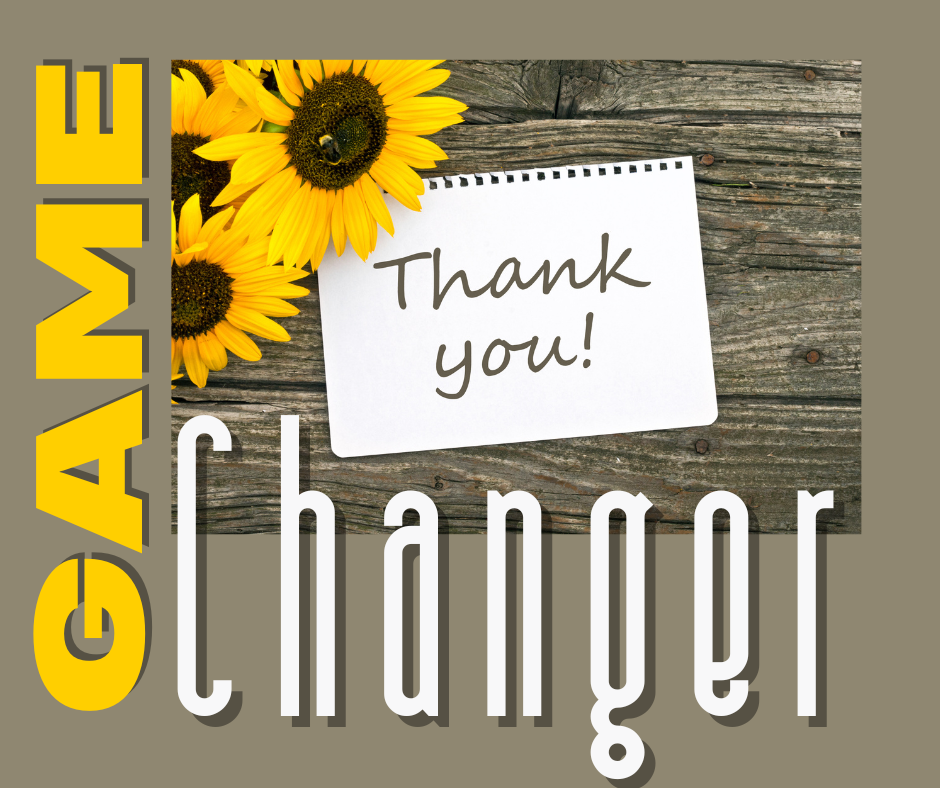Improve Your Company Culture with the Game Changer
If there is a topic that we could address in every home, office, school, and playground in North America in 2024, I think civility would be the game changer.
I like the Harvard Business Review and the MIT Sloan Management Review. I also receive professional Human Resource publications. SHRM’s HR Quarterly magazine dropped into the mailbox the other day, and its front page immediately told me the topic on which I needed to write this week’s post.
[I subscribe to several professional publications to keep up with trends in our professional practice. If you want to grow as a leader (and I assume your answer is YES; otherwise, why would you subscribe to Living Leadership?), I strongly suggest you subscribe to professional periodic publications. After all, you are primarily responsible for building your professional learning toolkit.]
The Headline
The front cover of their Summer 2024 magazine reads: “SHRM’s Civility Index Reveals More Than Half of US Workers Deem Society Uncivil. What does that mean for your workplace?”
The article reveals the results of a study conducted by the magazine earlier in the year, which found that the two most common expressions of incivility observed in workplaces were addressing others disrespectfully and interrupting or silencing others while speaking.
On the reverse side of this coin was that demonstrating active listening towards one another was found to be the cornerstone of creating a respectful and civil workplace.
The Power of Civility in the Workplace: The Game Changer
In today’s fast-paced work environments, one quality stands out: civility. Workplace civility might seem like a buzzword. Yet, its impact is profound. It’s the bedrock of a thriving organizational culture.
Think about it: a simple “thank you,” a smile, a nod of appreciation. These small acts build a bridge of respect and trust, make people feel valued, and create a sense of belonging.
Why does this matter?
A workplace filled with civility fosters collaboration, nurtures creativity, and boosts productivity. When employees feel respected, they’re more engaged, motivated, and likely to go the extra mile. You know this because you react the same way when you experience it.
Imagine a workplace where every interaction is marked by respect. Empathy is used to resolve conflicts. Ideas are shared openly. Team members support each other. A supportive workplace isn’t just a dream. It’s achievable. And it starts with civility.
Civility Enhances Communication
Effective communication is the lifeblood of any organization, and civility enhances it. When we communicate respectfully, we listen better, understand better, minimize misunderstandings, and find solutions faster.
Consider feedback. Constructive feedback, given respectfully, is a powerful tool. You help individuals grow and improve performance. But feedback laced with negativity demoralizes and creates resentment. Civility ensures feedback is received positively.
Civility Builds Stronger Teams
Teamwork is essential, but trust is necessary for a team to function well. Civility builds this trust, creates a culture of mutual respect, encourages open communication, and promotes collaboration.
Strong teams are the backbone of successful organizations. They’re resilient, innovative, and cohesive, and civility is the glue that holds them together.
Civility Attracts and Retains Excellence
In today’s competitive job market, attracting and retaining talent is crucial. Again, morale—the respect offered and behaviors modeled in the workplace—can be the game changer in the competitive hiring of quality employees. A civil workplace is attractive. It’s a place where people want to work and stay.
Top talent looks for more than just a paycheck. They seek a positive work environment and value respect and kindness. A culture of civility is a powerful retention tool. It reduces turnover and enhances job satisfaction.
Civility is Contagious
Here’s the best part: Civility is contagious. When leaders model civil behavior, it spreads, becoming part of the organizational culture. Everyone starts to follow suit.
Civility and respect create a ripple effect, where one act of kindness leads to another. Soon, the entire workplace is transformed, and civility becomes the norm, not the exception.
How to Foster Civility
So, how can we foster civility in the workplace?
- It starts with leadership. Leaders set the tone, must lead by example, and must demonstrate respect and kindness in every interaction.
- Training is also crucial. Employees should be trained in communication skills, learn to give and receive feedback respectfully, and understand the impact of their behavior on others.
Fiore Group Training staff spend much of our time working with clients and delivering workshops for leaders, managers, and front-line staff. Our company has served organizations of all kinds for over 30 years, with our reason to be—the fundamental training of all personnel for a respectful, safe, and happier workplace.
- Policies and procedures should support civility. These documents should provide guidelines on acceptable behavior and the mechanisms to address incivility promptly.
- Recognition and rewards can reinforce civil behavior in which we celebrate acts of kindness, acknowledge respectful interactions, and make civility part of the performance metrics.
The Bottom Line
Workplace civility is not just a nice-to-have. It is a must-have.
It’s the foundation of a positive work environment, the key to employee engagement and productivity, and the secret to attracting and retaining top talent.
Let’s make our workplaces sanctuaries of civility in a divided world. Let’s lead with respect and communicate with kindness.
Let’s build stronger, more cohesive teams. Let’s create workplaces where everyone feels valued and respected.
I Made A Difference To That One
Our trainers share a starfish story at the end of our Respectful Workplace workshops. You will clearly remember the story’s point if you have attended one of our training sessions.
The message is that civility is powerful and that we can transform our workplaces by being intentional in our interactions.
Together, we can make a difference.
What to Read
Here are a few of my favorite magazine resources:






